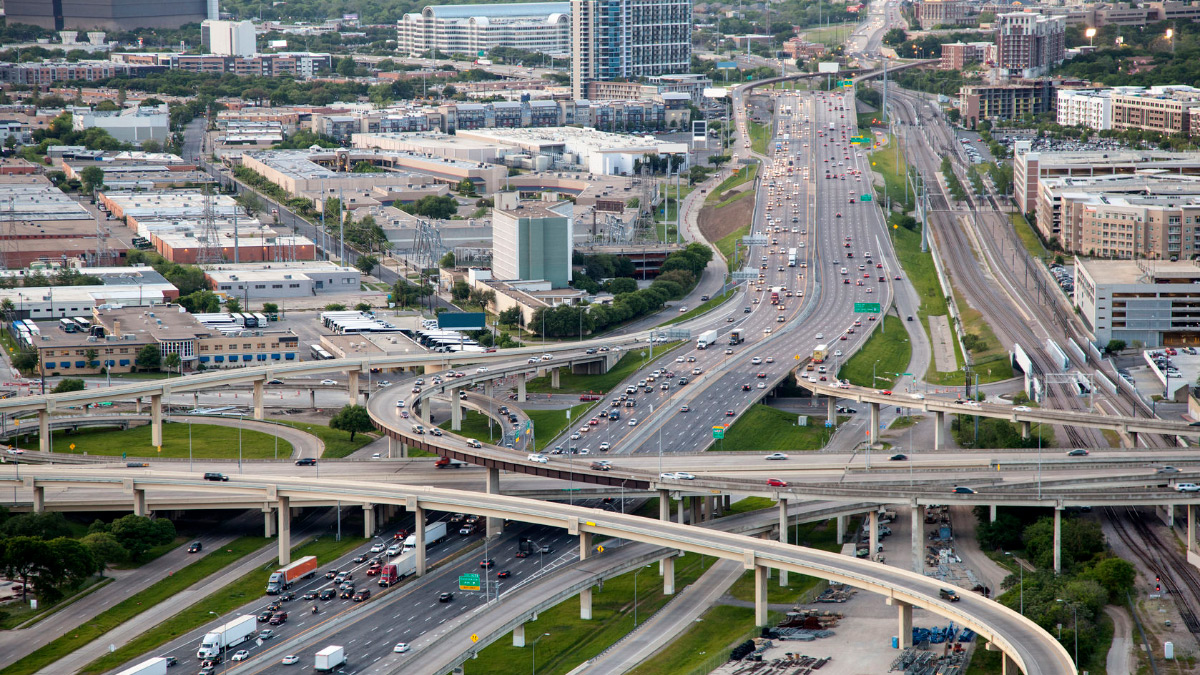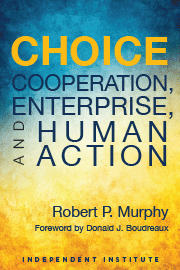Various reports suggest that policymakers—including President Trump himself—are considering raising the federal gas tax, by as much as 25 cents per gallon. Supporters argue that a hike is necessary to replenish the Highway Trust Fund, and—for those concerned about climate change—some also argue that a higher gas tax is needed to encourage drivers to switch to electric vehicles or mass transit.
These arguments are incorrect, even on their own terms. A gas tax is in principle a very blunt instrument for funding highway usage. And in terms of the political optics, imposing a huge new regressive tax on drivers would justify the critics of the recent income tax reform plan, who claimed that Republicans wanted to help the rich at the expense of the poor.
Ironically, if President Trump would just stick to his privately led infrastructure plan, then all of these problems would go away. The nation could get investment into those roads and bridges that genuinely need attention, while market prices would guide decisions and reduce traffic congestion. Road construction would be paid by users, the same way we pay for hotel construction. Smoother traffic flows would relieve stress and also cut way back on carbon dioxide emissions. As usual, the way to solve the problems in infrastructure is through less government intervention, not more.
Gas Tax, a Blunt Instrument
For some reason, people have adopted the notion that a gas tax directly attaches a fee to a driver’s “highway usage.” But that’s not true at all. Some people drive on highways very often, while other drivers remain on local roads. Yet the federal gasoline tax hits them equally.
Furthermore, when we’re trying to allocate the costs of highway construction fairly, the real issue is the wear and tear associated with a vehicle, not how many gallons of gasoline it burns. For example, an electric car causes a comparable amount of damage to a highway as a similarly-sized vehicle using conventional fuel, but the federal gas tax would implicitly charge only the latter driver for his usage.
In short, there is only a very tenuous link between the purchase of gasoline, and highway “usage.” Taxing gas to fund highways is like taxing forks to fund agriculture.
Tax Cuts for the Rich, Tax Hikes for the Poor?
There were many good arguments in favor of cutting the corporate income tax. Contrary to the claims of the critics, the recent tax legislation was not merely a “tax cut for the rich,” but instead should be expected to benefit workers and capitalists alike.
However, it would be even harder for Republicans to defend this stance, if shortly after cutting the corporate tax rate, they then more than double the federal gas tax. Regardless of the theoretical merits of such moves, it would certainly seem to the average voter that the Republicans weren’t really supporters of “lower taxes” after all.
Privatization Is the Answer
Ironically, the best solution to these political difficulties is contained in President Trump’s own infrastructure proposal—to rely on privatization, transferring roads and bridges back to investors who can rely on market signals to guide them in serving customers.
Privately-owned roads and bridges would have tolls set by supply and demand, just like prices are set in any other market. Infrastructure in need of repair or expansion would get it, whereas wasteful boondoggles would be minimized with private money on the line. People who rarely used highways wouldn’t be forced to pay for them, the way they are now with the federal gas tax.
Furthermore, for those worried about climate change, market pricing of tolls would greatly reduce traffic congestion. The smooth flow of vehicles during “rush hour” would eliminate unnecessary carbon dioxide emissions.
Conclusion
Using the federal gas tax to fund highways and other infrastructure is at best a very blunt instrument, and at worst an invitation to wasteful spending. Furthermore, it would be very bad optics for Republicans to support a regressive tax hike right after approving a large corporate income tax cut. The way to repair the nation’s infrastructure without burdening taxpayers is to rely on the market.










